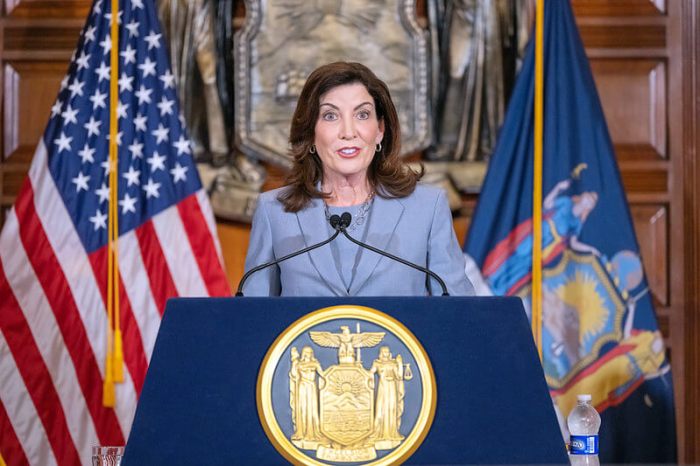Flu shots have rarely been so easy to find in New York City. This year’s influenza vaccine effectively targets this year’s virus, and it’s widely available through pharmacies, clinics and doctors’ offices. Yet as of Nov. 7, only 27 percent of New Yorkers had been vaccinated, according to the Centers for Disease Control and Prevention (CDC).
The CDC estimates that more than half the city’s seniors – and three-quarters of its children – remain unprotected from a serious but preventable illness.
Fortunately, this year’s flu season is just beginning, and there’s still time to get vaccinated. Unlike last year, when full protection required two separate vaccines, this year’s vaccine protects against three major strains of influenza: 2009 H1N1, H3N2 and influenza B. All three viruses have been detected in the United States this season.
Flu and pneumonia are the third leading cause of death in New York City, together killing 2,192 residents in 2008. People 50 and older account for 97 percent of these deaths, and those 65 and older account for 88 percent. Yet the Health Department’s latest findings show that vaccination rates remain low in these groups.
In fact surveys suggest that past-year vaccine rates for seniors fell from 63 percent in 2002 to just 53 percent in 2009. The self-reported rate of receiving the vaccine in the past year was just 35 percent among New Yorkers between 50 and 64 years old in the 2009 survey. The Health Department’s new report shows continued disparities by race, neighborhood and access to health insurance, with white and Asian New Yorkers reporting higher vaccination rates than other groups.
Only 46 percent of black New Yorkers 65 years or older reported being vaccinated in 2006-2008, compared to 60 percent of whites and 65 percent of Asians in the same age group.
“Whatever your age, race or background, coming down with the flu can be miserable and lead to serious health complications and even death,” said Dr. Thomas Farley, New York City Health Commissioner. “Even a mild case of influenza can cause fever, chills, and headache that cost you days of work or school. Why risk it when a safe, simple, two-minute shot can protect you? Years of research have shown that the vaccine works. Healthy people between 2 and 49 years old can get the flu vaccine through a nasal mist instead of an injection. So if you don’t like needles, ask your doctor whether the nasal mist is an option for you.”
The Health Department’s data show that many New Yorkers at higher risk of complications are going unvaccinated. Among adults between 18 and 64 years old, only 42 percent of those with diabetes, and only 34 percent of those with asthma, report being vaccinated during the past year. While yearly vaccination is now recommended for everyone aged 6 months and older, it’s especially important for people in these priority groups:
~Pregnant and post-partum women
~Children younger than 5 years, especially those under 2
~People 50 and older, especially those 65 and older
~People with certain chronic health conditions, including diabetes, lung disease (including asthma), heart disease, sickle cell anemia, weakened immune system (such as from HIV or cancer treatment), and any nerve or muscle disorder that can cause breathing problems
~People who live in nursing homes and other long-term-care facilities
~People who care for infants less than 6 months old
~Health care workers.
In addition to these priority groups, the Health Department strongly recommends that school-aged children get vaccinated. Besides protecting the children themselves, vaccination helps prevent them from spreading the infection to people at higher risk of severe illness, such as grandparents, infant siblings, or family members with chronic health conditions.
Influenza is just starting to circulate in New York City, so now is the time to get vaccinated.
In addition to getting vaccinated, here are some steps that New Yorkers of all ages can take to prevent the spread of flu and other infections.
Cover your mouth and nose when you cough or sneeze. Using a tissue or the inside of your elbow is better than using your hand.
Wash your hands often with soap and water, especially after you cough or sneeze. Use an alcohol-based hand sanitizer if soap and water are not readily available.
If you get sick, stay home for at least 24 hours after your fever resolves and avoid close contact with other people.
For more information about influenza, and for help getting vaccinated, please visit nyc.gov or call 311.






















